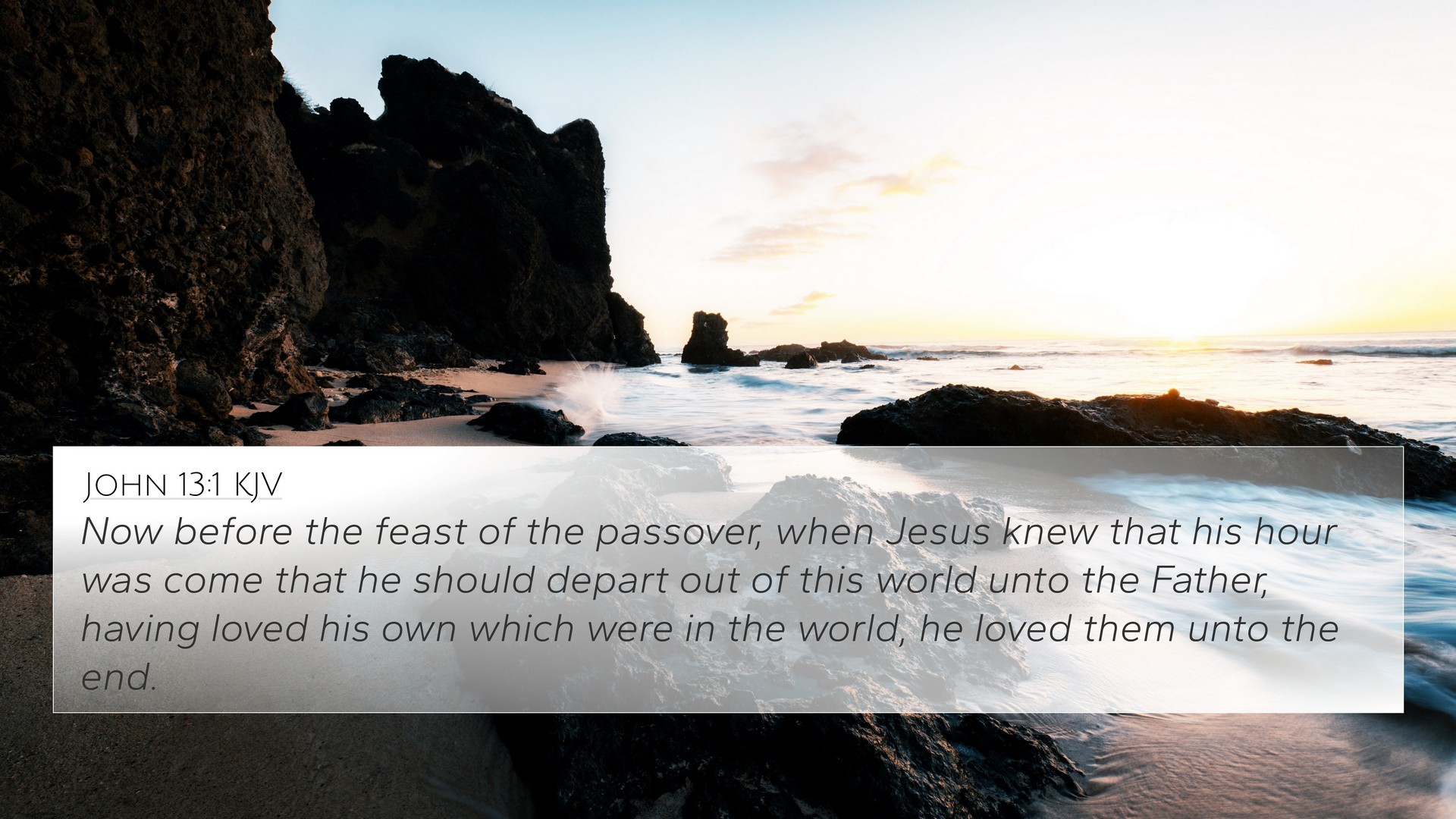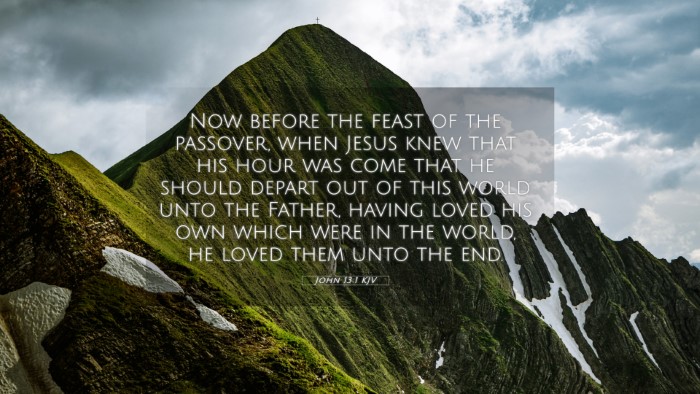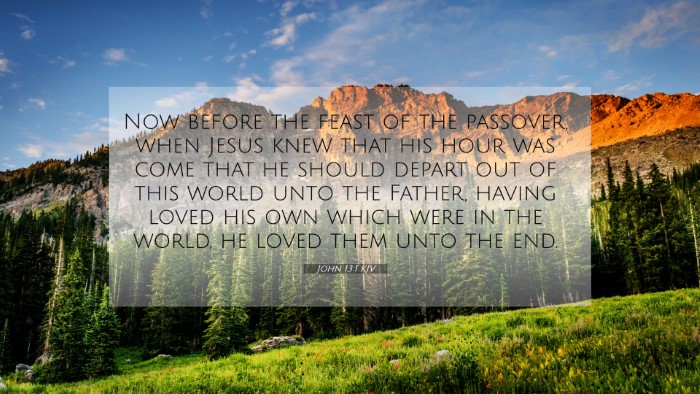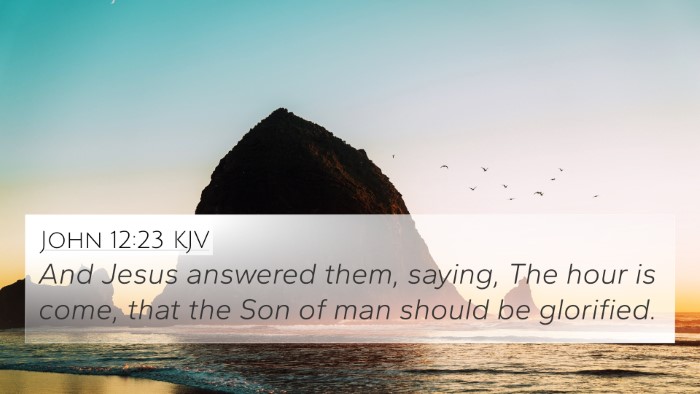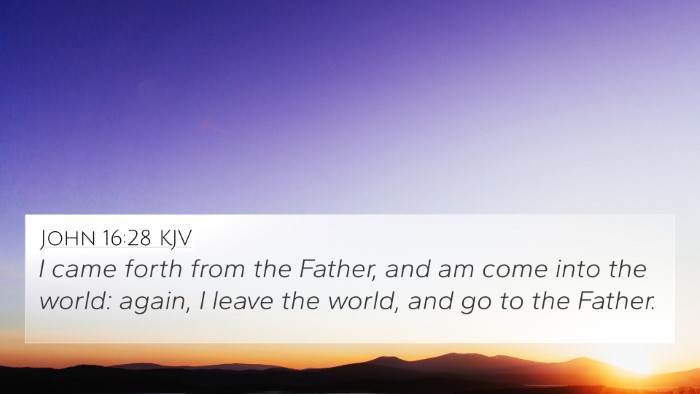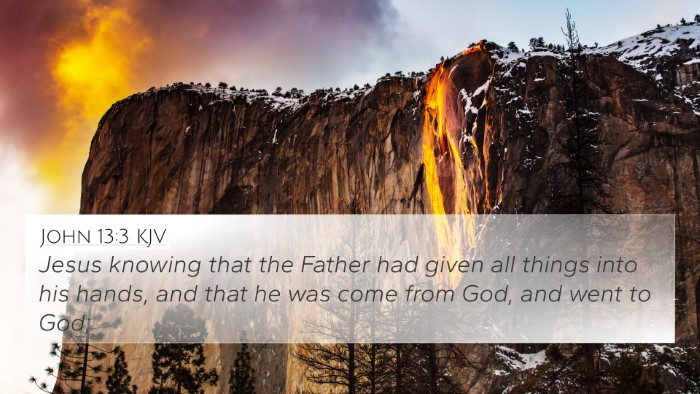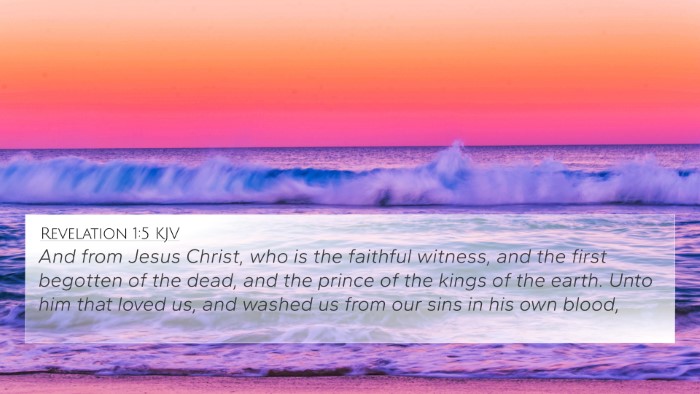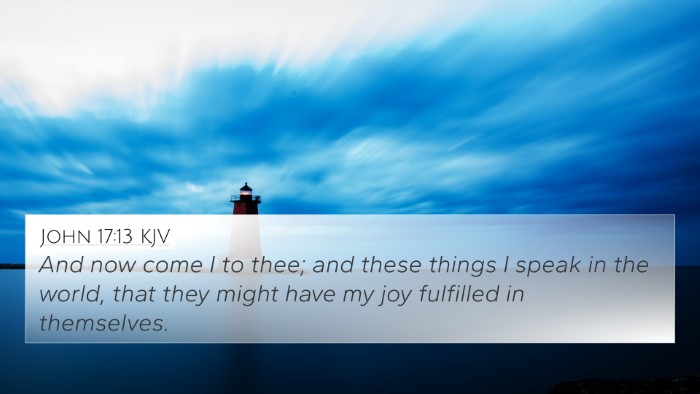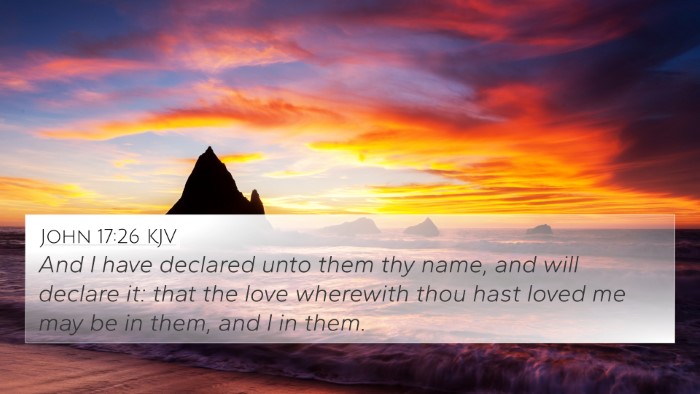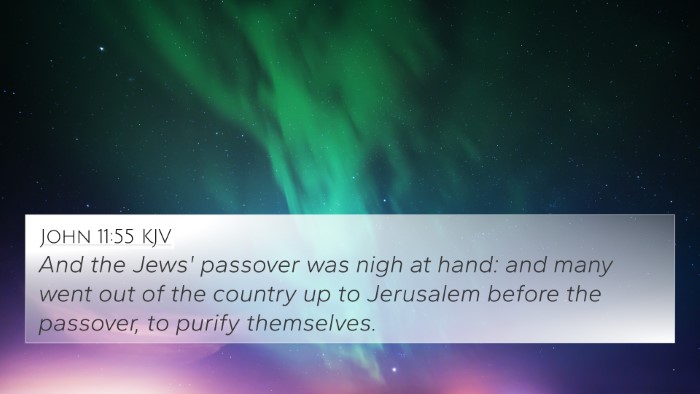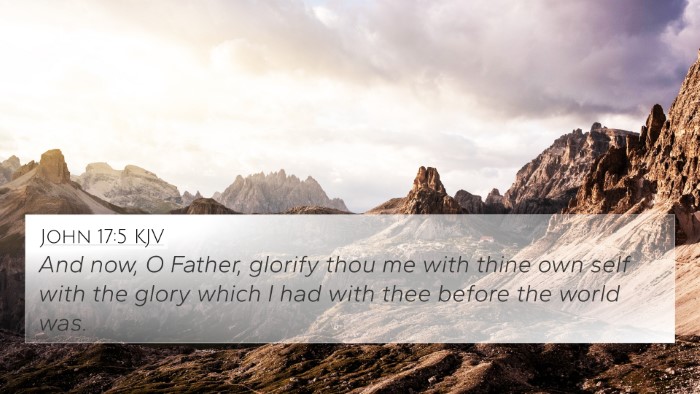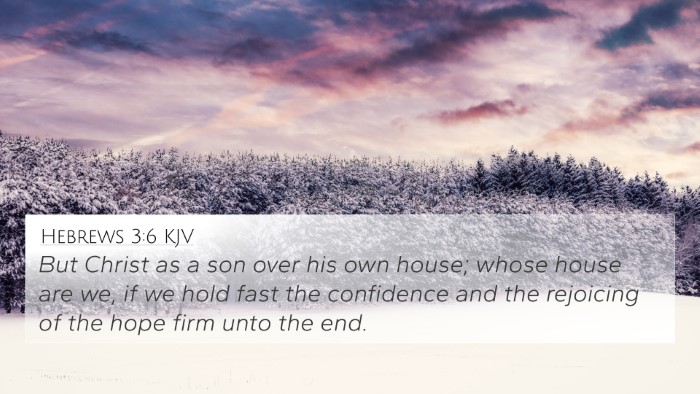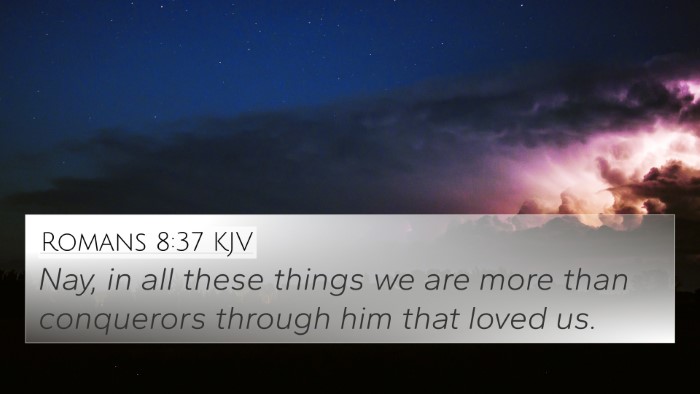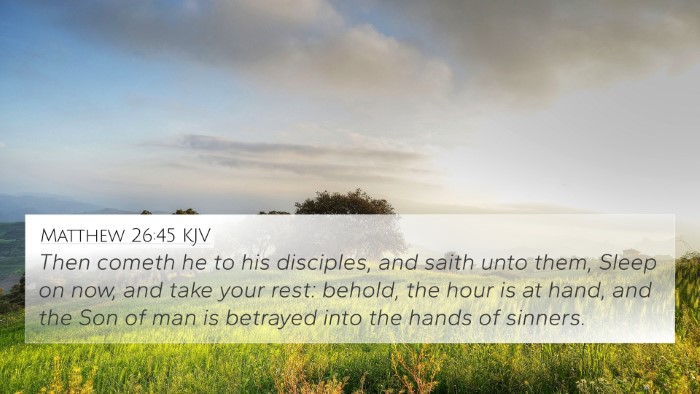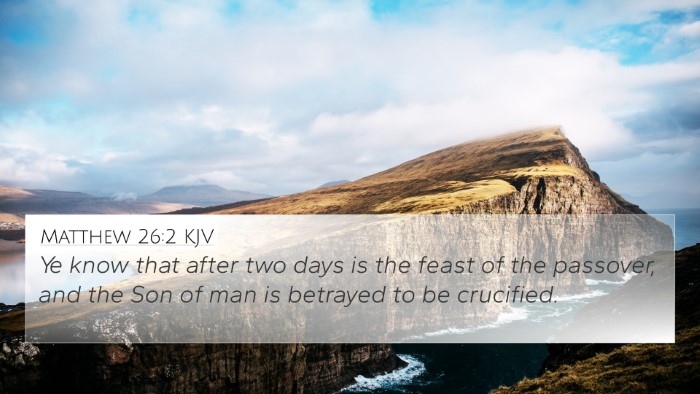Understanding John 13:1
Verse: "Now before the feast of the Passover, when Jesus knew that his hour had come that he should depart from this world to the Father, having loved his own who were in the world, he loved them to the end." (John 13:1 NKJV)
Summary of John 13:1
This verse sets the stage for one of the most significant moments in the New Testament, as it marks a critical transition in the narrative of Jesus’ ministry. Here, John emphasizes Jesus' foreknowledge of his impending crucifixion, his love for his disciples, and the profound relational depth of that love. This introduction serves to highlight not only the gravity of the moment but also the nature of Christ's love as unconditional and enduring.
Key Elements of the Verse
- Timing: The context of the verse places it just before the Passover feast, a pivotal time in Jewish history that symbolizes deliverance and covenant.
- Foreknowledge: Jesus’ awareness of his impending suffering emphasizes his divine nature and purpose.
- Love: The phrase "he loved them to the end" signifies a complete and perfect love, showcasing Christ's commitment to his disciples.
Bible Verse Cross-References
John 13:1 connects thematically and contextually with several other scriptures in both the Old and New Testaments. Below are key cross-references:
- Matthew 26:1-2 - Jesus reveals that he will be crucified during the Passover, relating to the context of John 13:1.
- Luke 22:15 - Jesus expresses a desire to eat the Passover with his disciples, underlining his love and intention.
- John 15:13 - "Greater love has no one than this, than to lay down one's life for his friends," which mirrors the selfless love evident in John 13:1.
- Matthew 20:28 - Jesus came to serve and give his life as a ransom, paralleling his impending sacrifice.
- John 10:14-15 - Jesus as the good shepherd who knows his own, deepening the relationship theme in John 13:1.
- Hebrews 12:2 - Looking to Jesus, the author and finisher of our faith, for encouragement as he faced the cross.
- Romans 5:8 - Christ died for us while we were still sinners, illustrating the width of his love.
- 1 John 4:9-10 - The demonstration of God’s love through the sending of his Son, reflecting on the essence of love.
- John 17:1-5 - Jesus’ prayer and recognition of his glorification as he nears the end of his earthly ministry.
- Isaiah 53:5 - The prophecy of suffering servant aligns with the understanding of Jesus’ sacrificial love.
Thematic Connections between Bible Verses
The inter-Biblical dialogue surrounding John 13:1 enhances our understanding of Jesus’ mission on earth and highlights his relationships with his disciples.
Love and Sacrifice
Numerous passages alongside John 13:1 emphasize the theme of love manifested through sacrifice. For instance, passages like Romans 5:8 and John 15:13 illustrate the concept that true love involves self-giving, which culminates in Christ’s ultimate sacrifice.
Covenantal Context
The setting during Passover provides a rich tapestry of Old Testament traditions fulfilled in Christ. Understanding the connection to the Passover in Exodus 12 and the symbolism within John’s narrative deepens our appreciation of Jesus' role as the Lamb of God.
Discipleship and Relationship
The profound love Jesus has for his own is echoed throughout scripture, calling believers into deeper relationships with God and one another. 1 John 3:1 proclaims the love with which the Father has bestowed upon us, encouraging us to share that love with others, in line with the example Jesus sets.
Insights from Commentaries
This verse has been widely interpreted by notable scholars:
- Matthew Henry: He emphasizes the importance of Jesus’ love as central to his mission, demonstrating that Christ's love was not only for the disciples but extended to all humanity.
- Albert Barnes: Barnes points out the significance of "knowing" his hour had come, suggesting that Jesus’ awareness imbued every action he took, reinforcing his agency in the events that were unfolding.
- Adam Clarke: Clarke highlights the phrase "to the end," suggesting that this love was constant, unwavering, and did not falter even in the face of ultimate sacrifice.
Application in Personal Study
Understanding John 13:1 through the lens of cross-referencing provides greater insight into the rich theological implications of Christ's actions and teachings. Below are some tools to aid in further exploration:
- Bible Concordance: A tool to find words and their occurrences throughout scripture, helping locate related verses.
- Bible Cross-Reference Guide: A resource to navigate scripture and draw parallels between verses that share themes or teachings.
- Cross-Reference Bible Study: Methods to study Bible verses in context with related scriptures for a comprehensive understanding.
- Bible Reference Resources: Guides providing contextual backgrounds and theological insights into various passages.
- Cross-Referencing Bible Study Methods: Strategies for connecting scriptures, enhancing understanding through relational insights.
Conclusion
John 13:1 encapsulates the foundational message of the Gospel - love, sacrifice, and the fulfillment of God's plan through Jesus Christ. By engaging with this verse alongside other relevant scriptures, readers can grasp the profound nature of Christ's love, his readiness to embrace his fate, and the call to discipleship marked by that love.
Through these thematic Bible verse connections, believers are encouraged to explore scripture deeply and to ponder the riches of Christ's love, which transcends time and instructs us in our journey of faith.
